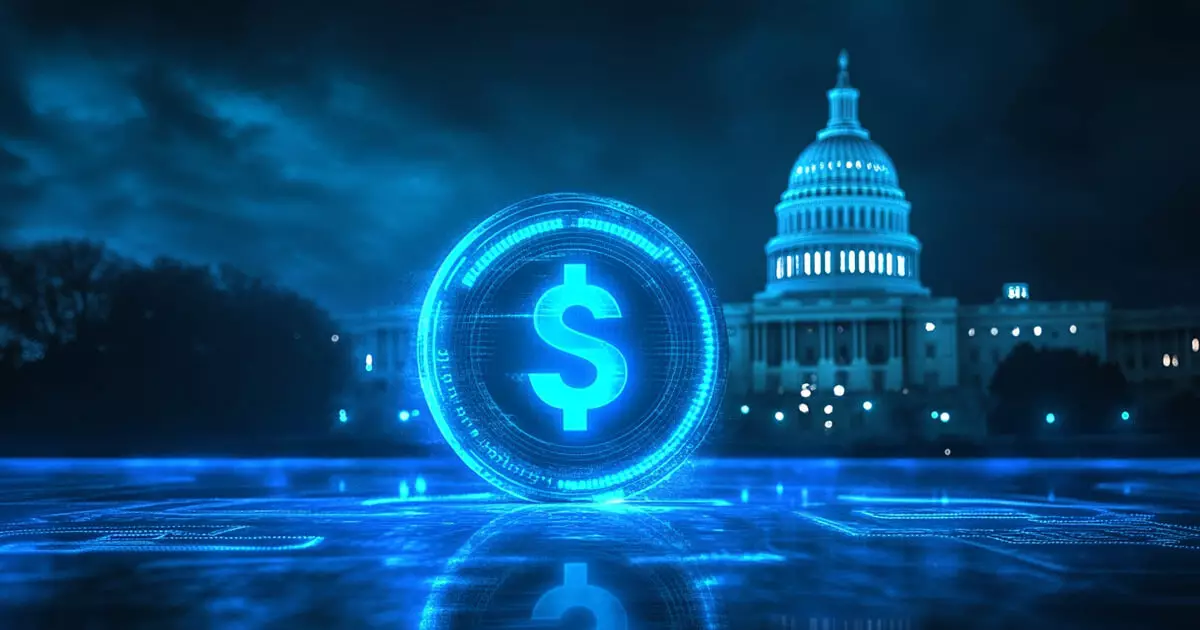In an era characterized by intense political polarization, the recent passage of the GENIUS Act by the Senate Banking Committee with an 18-6 vote serves as a beacon of hope for those who support financial innovation. Authored by Senator Bill Hagerty, the bill secured not just Republican backing, but also endorsements from a handful of Democratic senators, demonstrating that the urgency of establishing a robust regulatory framework for digital assets transcends party lines. This bipartisan collaboration brings a refreshing perspective that could redefine how we perceive and implement financial regulations in America.
The significance of this moment cannot be overstated. It highlights the critical need for unity in addressing the challenges presented by rapidly evolving digital assets, such as cryptocurrencies and stablecoins. By producing legislation that aims to foster innovation rather than stifle it, lawmakers are recognizing that a forward-thinking regulatory landscape is vital for America to maintain its competitive edge in the global economy.
Framework for Stability and Growth
At its core, the GENIUS Act sets forth a comprehensive regulatory framework for stablecoin issuance. It mandates that each token issued must be backed by reserves, such as US dollars or insured bank deposits, ensuring that stablecoin issuers can provide liquidity and stability to their customers. This is a pivotal step towards safeguarding American consumers while simultaneously promoting growth in a burgeoning sector ripe with potential.
Senator Tim Scott has astutely noted that for too long, businesses and consumers have navigated financial waters fraught with uncertainty. The GENIUS Act promises to eliminate this ambiguity by defining stablecoins as non-securities, hence, steering them away from the overreaching jurisdiction of the Securities and Exchange Commission (SEC). This clarification positions stablecoins as essential vehicles within the financial system, free from what many view as regulatory overreach.
State versus Federal Oversight: A Dual Pathway
One of the GENIUS Act’s standout features is its acknowledgment of the distinct regulatory environments that exist across states. By providing issuers with a choice between state-level and federal oversight—as long as they meet a baseline of federal standards—the bill allows for adaptability in a sector that can no longer afford the constraints of outdated regulatory frameworks. This dual pathway not only promotes innovation but also encourages states to refine their own regulations to remain competitive within this emerging digital landscape. This flexibility can catalyze states to become crypto-friendly, boosting local economies and attracting tech talent.
Ending the Weaponization of Financial Regulation
The notion of “ending the weaponization of financial regulators,” as put forth by Senator Scott, strikes a chord in today’s climate where regulatory actions often impede genuine innovation. Many entrepreneurs and investors have perceived the SEC’s enforcement-heavy approach as a detrimental barrier to progress. The GENIUS Act’s proactive stance on establishing clear, principled guidelines for stablecoins aims to invert this trend. By fostering an environment that values innovation over punitive measures, the bill promises to invigorate the American financial system rather than restrict it.
A Competitive Edge on the Global Stage
The GENIUS Act doesn’t just serve domestic interests; it has global implications as well. As crypto adoption rises around the world, failure to establish a clear regulatory framework in the U.S. could result in a significant loss of leadership in the digital asset space. Senators like Cynthia Lummis have been vocal about the need for the U.S. to remain competitive against nations that are quick to embrace cryptocurrency innovations.
Leading figures in the crypto industry, including Circle CEO Jeremy Allaire and Coinbase’s Faryar Shirzad, have already heralded the Committee’s vote as a transformative step towards upgrading and enhancing the global competitiveness of the U.S. dollar. If Congress fully supports the GENIUS Act, it could usher in an era of economic revitalization that utilizes digital assets as powerful tools for strengthening the American economy.
The ambition encapsulated within the GENIUS Act underscores a fundamental truth: clarity in regulation can go hand in hand with fostering innovation. In times when the narrative often leans towards caution and overregulation, embracing a dynamic approach may well be the antidote to stagnation. The U.S. has a golden opportunity to not only lead in digital asset regulation but also lay the groundwork for a financial renaissance.















